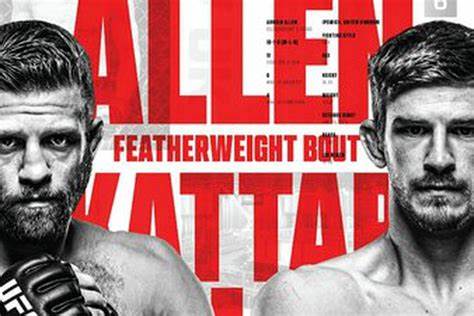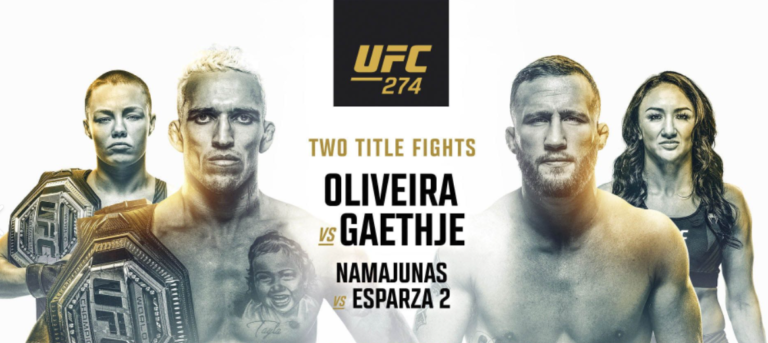Is UFC Becoming More Like WWE?
UFC and WWE are two of the most popular and profitable combat sports in the world. While they have different origins and formats, they also have many similarities that make them appealing to millions of fans. However, some fans and critics have noticed that UFC is becoming more like WWE in recent years, especially in terms of how it operates as a business and how it presents its product. Is this a good or a bad thing for UFC? Is it still a sport or a spectacle? Let’s explore some of the ways that UFC is becoming more like WWE and what it means for the future of MMA.
The Similarities Between UFC and WWE
There are many similarities between UFC and WWE that make them both successful and entertaining. Here are some of the most notable ones:
- One man books the fights: Both UFC and WWE are controlled by one man who has the final say on everything. In UFC, that man is Dana White, the president and face of the company. In WWE, that man is Vince McMahon, the chairman and CEO of the company. Both men are very influential and powerful in their respective fields, and they decide who fights who, when, and where. They also have the ability to create or cancel fights, change the rules, and reward or punish fighters according to their own preferences.
- They were both built on the pay-per-view model: Both UFC and WWE rely heavily on the pay-per-view (PPV) model to generate revenue and attract viewers. PPV is a system where fans have to pay a fee to watch a live event, usually a major fight or a wrestling show. Both UFC and WWE have monthly PPVs that feature their biggest stars and their most important matches. They also use other platforms, such as TV, streaming services, or social media, to promote their PPVs and build up the hype and anticipation for them.
- Incredible video teams: Both UFC and WWE have amazing video teams that produce high-quality and engaging content for their fans. They use video packages to tell the stories of their fighters and wrestlers, to highlight their skills and personalities, and to build up the rivalries and the stakes for their upcoming fights or matches. They also use video clips to recap the events, to showcase the highlights, and to create memorable moments for their fans.
- Titles don’t mean as much as they should: Both UFC and WWE have titles or belts that are supposed to represent the best fighters or wrestlers in their respective divisions or categories. However, both companies have devalued their titles by creating too many of them, by changing them too often, or by ignoring them altogether. For example, UFC has created interim titles, which are temporary titles that are awarded to fighters when the regular champion is injured or unavailable. However, these interim titles often create confusion and controversy, as they are not always unified with the regular titles, or they are stripped away for arbitrary reasons. WWE has also created many titles, such as the Universal Championship, the 24/7 Championship, or the Women’s Tag Team Championship, that are either not defended regularly, not taken seriously, or not given enough attention or respect.
- Both promotions try to push their favourites: Both UFC and WWE have their favourite fighters or wrestlers that they try to push or promote more than others. These favourites are usually the ones who are more popular, more marketable, or more loyal to the company. They are given more opportunities, more exposure, and more favourable treatment than others. For example, UFC has pushed fighters like Conor McGregor, Ronda Rousey, or Jon Jones, who are some of the biggest stars and draws in the company, despite their controversies or inconsistencies. WWE has pushed wrestlers like Roman Reigns, John Cena, or Charlotte Flair, who are some of the most reliable and consistent performers in the company, despite their mixed or negative reactions from the fans.
The Implications of UFC Becoming More Like WWE
The similarities between UFC and WWE are not necessarily bad, as they can also bring some benefits and advantages to both companies. For example, they can help them expand their fan base, increase their revenue, and improve their production value. However, they can also have some drawbacks and risks, such as:
- Losing credibility and legitimacy: One of the main appeals of UFC is that it is a real and authentic sport, where the outcome of the fights is not predetermined or scripted. However, by becoming more like WWE, which is a scripted and predetermined entertainment, UFC might lose some of its credibility and legitimacy as a sport. Fans might question the integrity and fairness of the fights, the rankings, and the titles, and they might lose interest or trust in the company. UFC might also face more criticism and scrutiny from the media, the regulators, and the fighters themselves, who might feel cheated or disrespected by the company.
- Losing focus and quality: Another appeal of UFC is that it is a focused and quality sport, where the fights are based on skill, talent, and merit. However, by becoming more like WWE, which is a spectacle and entertainment, UFC might lose some of its focus and quality as a sport. Fans might be distracted or disappointed by the drama, the hype, and the gimmicks, and they might miss the essence and the beauty of the sport. UFC might also compromise or sacrifice the quality and the safety of the fights, the fighters, and the fans, by booking too many fights, by rushing or delaying the fights, or by ignoring the rules or the regulations.
Is UFC a Sport or a Spectacle?
The answer to this question is not clear-cut, as UFC is both a sport and a spectacle, depending on how you look at it. UFC is a sport, because it involves physical competition, athletic skill, and objective rules. UFC is also a spectacle, because it involves entertainment, storytelling, and subjective factors. UFC is not the first or the only sport to be a spectacle, as many other sports, such as boxing, soccer, or basketball, also have elements of spectacle in them. However, UFC is one of the most prominent and extreme examples of a sport that is also a spectacle, as it has many similarities with WWE, which is a spectacle that pretends to be a sport.
The question is not whether UFC is a sport or a spectacle, but rather how much of a sport or a spectacle it is, and how much of a sport or a spectacle it should be. There is no definitive or universal answer to this question, as different fans, fighters, and critics might have different opinions and preferences on this matter. Some might prefer UFC to be more of a sport, while others might prefer it to be more of a spectacle. Some might enjoy the balance and the variety that UFC offers, while others might be frustrated or confused by it. Ultimately, UFC has to find its own identity and direction, and decide what kind of sport or spectacle it wants to be, and what kind of sport or spectacle its fans want it to be.








